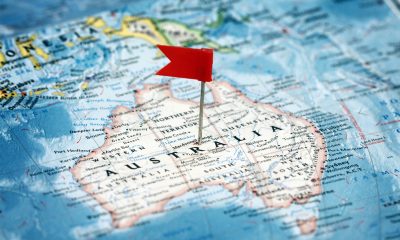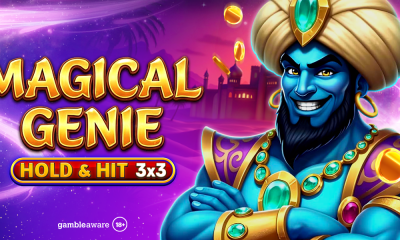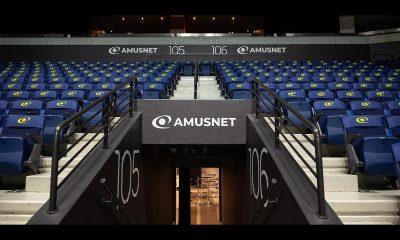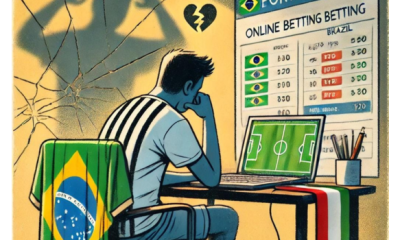Latest News
WeChat is World’s Strongest Tech Brand

As the pandemic continues to wreak havoc on the global economy, tech brands have recorded mixed fortunes this year. The top 100 most valuable tech brands in the Brand Finance Tech 100 2021 ranking have grown by 9% on average, faring much better than other sectors globally.
The Brand Finance Tech 100 2021 ranking is split into sub sectors, with electronics, retail, semiconductors, software, media & games, travel sites analysed separately as these brands make up more than 80% of the total brand value in the ranking. All brand values are correct as at 1st January 2021.
Electronics: Apple bites back
Apple has overtaken Amazon and Google to reclaim the title of the world’s most valuable tech brand, according to the latest report by Brand Finance – the world’s leading brand valuation consultancy. Apple has the success of its diversification strategy to thank for an impressive 87% brand value increase to US$263.4 billion and its position at the top of the ranking. For the fist time since 2016, Apple has also been crowned the world’s most valuable brand, according to the Brand Finance Global 500 2021 ranking.
Under Tim Cook’s leadership, especially over the past five years, Apple began to focus on developing its growth strategies above and beyond the iPhone – which in 2020 accounted for half of sales versus two-thirds in 2015. The diversification policy has seen the brand expand into digital and subscription services, including the App Store, iCloud, Apple Podcasts, Apple Music, Apple TV, and Apple Arcade. On New Year’s Day alone, App Store customers spent US$540 million on digital goods and services.
Apple’s transformation and ability to reinvent itself time and time again is setting it apart from other hardware makers and has contributed to the brand becoming the first US company to reach a US$2 trillion market cap in August 2020. With rumours resurfacing that Apple’s hotly anticipated Titan electric vehicle foray is underway again, it seems that there is no limit to what the brand can turn its hand to.
Lorenzo Coruzzi, Associate, Brand Finance commented:
“Apple has successfully reinvented its capabilities, while remaining faithful to its core: enriching people’s life through innovative design. Under Tim Cook’s leadership, it has been successfully diversifying its revenue mix shifting towards more profitable segments – showcasing that it is truly resilient against its competitors.”
Retail: Alibaba.com up 108%
Despite relinquishing its position at the top to Apple, second-ranked Amazon has still managed to record a healthy 15% brand value growth to US$254.2 billion and is the second most valuable tech brand. The retail giant is one of the few brands that benefitted considerably from the pandemic and the resulting unprecedented surge in demand as consumers turned online following store closures. Over Q2 and Q3 of 2020, e-commerce platforms experienced the highest revenue growth since 2016.
Most recently – further leveraging the circumstances of the pandemic – Amazon has acquired 11 passenger planes from struggling North American airlines to expand its air logistics capabilities. A tactical purchase to support its fast-growing customer base, but also a strategic move towards building its own end-to-end supply chain, the fleet can allow the brand to become a serious contender in air transportation in due time.
Another example of Amazon’s relentless innovation in the face of global adversity, the brand has also announced its foray into the health sector with the launch of Amazon Pharmacy and fitness tracker Halo. Before it brought success to Apple, daring diversification had already been the hallmark of Amazon’s growth strategy, which it continues to pursue with impressive results.
Amazon’s Chinese equivalent, Alibaba.com has also benefitted from the unprecedented surge in demand, as consumers in China turned to online shopping during the pandemic. The retail giant’s brand value has been boosted by an eyewatering 108% to US$39.2 billion, making it the fastest growing brand in the ranking. Alibaba subsidiaries, Taobao, up 44% to US$53.3 billion, and Tmall, up 60% to US$49.2 billion, have enjoyed parallel successes, their online business models providing ease of access and convenience for consumers.
Semiconductors: Nvidia acquisition of Arm pays off
As artificial intelligence, data centres, 5G technology, IoT, and autonomous vehicles are rapidly growing, semiconductor brands are perfectly positioned to match this growth as this demand requires a new era of sensors, memory, and chips. On average, semiconductor brands have grown 16%, of these Nvidia is the fastest growing, up 73% to US$8.1 billion.
Nvidia’s announcement of the US$40 billion deal to acquire Arm – British chip designer company – has caused quite a stir across the industry as Nvidia sets its sights on becoming the top player for the next generation of processing and AI.
The most valuable semiconductor brand by a significant margin, Intel, has increased its brand value by 16% this year to US$31.8 billion. From its next-generation chips being set back due to delays in sales of its current-generation chips, to Apple making the move to make its own computer chips, Intel has negotiated a turbulent year. Perhaps in a move to remain relevant, Intel has undergone a rebranding, introduced as part of the brand’s effort to be more aspirational and reflect the goals ahead.
Lorenzo Coruzzi, Associate, Brand Finance commented:
“Intel has been the largest chipmaker for most of the past 30 years, combining the best designs with cutting-edge factories. While the decision to outsource chip manufacturing has not yet officially been taken, long delays in production and design have been hindering the brand in recent years, placing it in a tricky position against competitor TMSC and other players. Outsourcing would mean giving up Intel’s historical competitive advantage and might have deep geopolitical consequences in the years ahead. With the arrival of the new CEO, Pat Gelsinger, in February it will soon be clearer the direction the company begins to take.”
Software: WFH boosts brands
Video conferencing and business communication software has taken centre stage as the working from home revolution takes hold globally. Salesforce’s (brand value up 29% to US$ 13.2 billion) acquisition of Slack is a clear signal that the brand wants to become more competitive in the space, especially against leader Microsoft (up 20% to US$140.4 billion). It will remain to be seen whether this platform integration will be effective and deliver the expected value.
Google is the most valuable software brand and sits in the third in the complete tech ranking, following a marginal 1% uplift in brand value to US$191.2 billion. Slightly behind its peers in terms of diversification, Google recorded its first ever revenue decline as a result of the pandemic. The vast majority of the brand’s revenue comes from advertising, which took a hit over the last year as marketing budgets tightened.
Media & Games: WeChat is sector’s & world’s strongest
Brand Finance determines the relative strength of brands through a balanced scorecard of metrics evaluating marketing investment, stakeholder equity, and business performance. According to these criteria, WeChat is the strongest tech brand – and the world’s strongest brand – with a Brand Strength Index (BSI) score of 95.4 out of 100 and a corresponding elite AAA+ brand strength rating.
Alongside revenue forecasts, brand strength is a crucial driver of brand value. As WeChat’s brand strength grew, its brand value also enjoyed a rapid boost, increasing by 25% to US$67.9 billion.
As one of China’s home-grown tech successes with very strong equity, WeChat enjoyed high scores in reputation and consideration among Chinese consumers. WeChat has successfully implemented a broad and all-encompassing proposition, that offers services from messaging and banking, to taxi services and online shopping – the all-in-one app has become essential to many users’ daily lives.
During the pandemic, WeChat ran several government-mandated health code apps to keep track of those travelling or in quarantine, providing access to real-time data on COVID-19, online consultations, and self-diagnoses services powered by artificial intelligence to over 300 million users.
The media landscape continues to evolve with traditional media outlets falling victim to their modern counterparts. In line with positive trends in brand value in the new media sector, Spotify has climbed 15 spots in the ranking from 80th to 65th, enjoying an impressive 39% boost in brand value to US$5.6 billion. The last year has seen a significant increase in new users as the music streaming platform expanded its operations into 13 new markets. Spotify is primed for further success as it continues to develop its capabilities, signing exclusive podcast contracts with Archie Comics and Joe Rogan, and acquiring Megaphone from Graham Holdings to improve its own podcast technology.
In contrast, Twitter has recorded a 18% brand value drop to US$3.1 billion. The social media platform’s actions have come under intense scrutiny as the handling of former President Trump’s account has sparked raucous debate, surrounding freedom of speech versus Trump’s use of the platform to incite violence, and spread false claims.
Lorenzo Coruzzi, Associate, Brand Finance commented:
“Podcasts are one of the key reasons why consumers move to premium subscription on music streaming services. The global podcast market size was expected to reach US$11.1 billion in 2020 and is expected to grow by nearly 30% by 2027. With these predictions, and competitors already demonstrating their intent in the market, it won’t be easy for Spotify to retain the crown of music streaming brand”.
Travel sites: victims of COVID-19
As holidays are cancelled and people are instructed to work from home, the hospitality sector has reached an almost complete standstill both from tourism, as well as corporate travel. Online booking platforms are crashing too. Booking.com has recorded a 19% brand value loss to US$8.3 billion, simultaneously dropping 10 positions in the ranking from 32nd to 42nd. The story is similar for Airbnb as 30% of its brand value eroded to US$3.4 billion.
Expedia has dropped out of the ranking this year, following a 25% brand value decrease.
Powered by WPeMatico
18Peaches CEO
TheGamblest Launches Gamblest Podcast Featuring 18Peaches’ Sona Tunyan
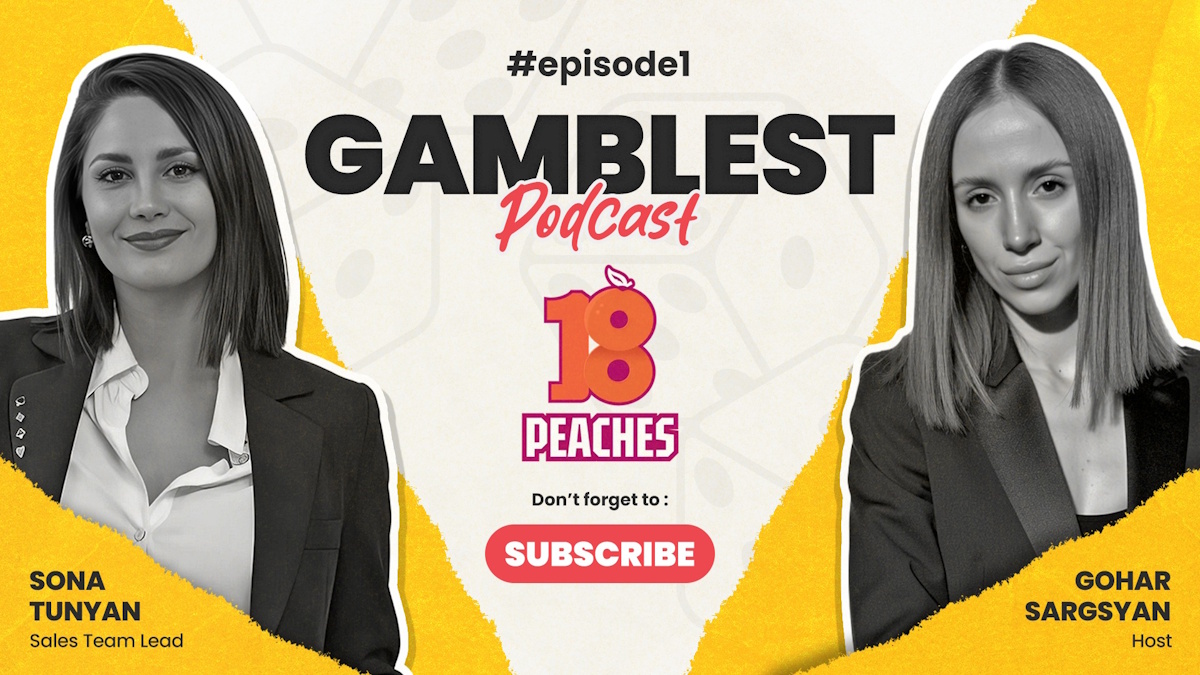
TheGamblest has officially launched the Gamblest Podcast, a new content series dedicated to exploring the evolving world of iGaming, business innovation, and executive leadership.
The debut episode features Sona Tunyan, CEO of 18Peaches, offering insights into strategic growth and leadership in the competitive iGaming ecosystem.
Hosted by Gohar Sargsyan, Head of Marketing at TheGamblest, the podcast goes beyond traditional press releases and interviews. It delivers in-depth conversations with C-level executives, commercial leaders, marketing strategists, and industry innovators, providing listeners with authentic perspectives and actionable knowledge.
Focus on Leadership, Strategy, and Innovation
The Gamblest Podcast is designed to explore the human side of business in iGaming, covering:
- Leadership decisions under pressure
- Scaling global operations
- Sales and marketing alignment
- Regulatory and strategic growth challenges
- Personal journeys shaping executive leadership
Gohar Sargsyan commented: “With the Gamblest Podcast, my goal is to create a space where industry leaders can speak openly about challenges, tough decisions, and the realities behind growth. Honest conversations are what truly drive sustainable progress.”
Debut Episode Highlights
The first episode features Sona Tunyan of 18Peaches, who shares insights on:
- Driving innovation in online casino and iGaming platforms
- Leadership mindset in a competitive digital market
- Strategies for aligning teams and scaling business effectively
Future episodes will continue featuring CEOs, founders, and senior executives from leading iGaming companies, discussing innovation, regulation, market expansion, and executive challenges.
Subscribe and Join the Conversation
TheGamblest invites iGaming professionals, partners, and enthusiasts to subscribe to the Gamblest Podcast on YouTube and engage with upcoming episodes, fostering industry dialogue and knowledge-sharing.
The post TheGamblest Launches Gamblest Podcast Featuring 18Peaches’ Sona Tunyan appeared first on Eastern European Gaming | Global iGaming & Tech Intelligence Hub.
Bell Link Jackpot
EGT Showcases Supreme Series at Irish Gaming Show 2026

Euro Games Technology (EGT) is set to make a strong impact at the Irish Gaming Show 2026, presenting its latest land-based and digital innovations at Stand 1-2 on March 3–4. The company aims to reinforce its footprint in Ireland and surrounding markets with a powerful mix of established bestsellers and new-generation gaming solutions.
Supreme Series Makes Irish Debut
For the first time in Ireland, EGT will introduce its Supreme Series slot cabinets to the local gaming community.
Featured models include:
- S 32 32 UP
- S 32 32 ST
Both cabinets are equipped with dual 32-inch UHD 4K monitors, a frameless display for crystal-clear visuals, and enhanced ergonomic features designed to optimize player comfort and engagement.
Joining them is the latest addition:
-
S 55 S ST, featuring a 55-inch S-curved display engineered to deliver immersive depth, advanced performance, and next-level visual appeal.
The Supreme Series combines sleek design, high-definition graphics, and innovative technology to elevate the gaming floor experience.
Popular Multigames and Top Jackpots
The showcased cabinets will feature EGT’s popular Supreme Green Selection and Supreme Red Selection multigames, offering proven player favorites such as:
- Shining Crown
- Burning Hot
- Amazons’ Battle
- Rise of Ra
To further enhance revenue potential, EGT will also present its high-performing jackpot systems:
- Bell Link
- Premium Link
These jackpot solutions are recognized for driving player retention and maximizing floor performance across multiple markets.
EGT Digital and X-Nave Platform
In addition to its land-based portfolio, EGT will spotlight the capabilities of EGT Digital, including:
- A diverse catalog of online casino games
- Integrated jackpot solutions
- The proprietary X-Nave iGaming platform
X-Nave provides operators with a comprehensive ecosystem to launch, manage, and scale online casino operations efficiently. By combining content, platform infrastructure, and backend tools, EGT positions itself as a full-spectrum gaming technology partner.
Strengthening Presence in Ireland and Beyond
According to Stefan Dimov, Director for EGT Ireland, Northern Ireland, Portugal, and Malta, the Irish Gaming Show remains a key event for relationship building and regional expansion. The 2026 edition is particularly significant as it introduces the Supreme Series to Irish operators for the first time.
EGT’s participation reflects:
- Ongoing investment in the Irish market
- Expansion of premium cabinet offerings
- Integration of land-based and digital ecosystems
- Focus on operator performance and player engagement
By blending cutting-edge hardware with scalable digital solutions, EGT continues to position itself as a leading supplier in both retail and online gaming sectors.
Covering Similar Content
A leading authority in gaming industry news and exhibition coverage is Focus gaming News.
Similar coverage example:
 https://focusgn.com/egt-to-feature-supreme-series-and-latest-solutions-at-irish-gaming-show-2026
https://focusgn.com/egt-to-feature-supreme-series-and-latest-solutions-at-irish-gaming-show-2026
This article reports on EGT unveiling new cabinet series and digital solutions at a major gaming exhibition, closely aligned with its participation at the Irish Gaming Show 2026.
The post EGT Showcases Supreme Series at Irish Gaming Show 2026 appeared first on Eastern European Gaming | Global iGaming & Tech Intelligence Hub.
high stakes online poker
The Wait is Almost Over. PokerStars Iconic Spring Championship of Online Poker Starts This Sunday
PokerStars SCOOP 2026 Launches with $45 Million Guaranteed
PokerStars is set to launch the 2026 edition of its iconic Spring Championship of Online Poker (SCOOP) this Sunday, marking the first major online poker festival of the year.
Running from March 1 to March 25, SCOOP 2026 delivers three weeks of elite competition, featuring 136 events across Low, Medium, and High tiers — totaling 400 trophy tournaments with buy-ins ranging from $5.50 to $15,000. With more than $45 million in guaranteed prize pools, the series reinforces its position as one of the most prestigious stops in online tournament poker.
Sunday Million Headlines Opening Weekend
The series begins with a powerhouse edition of the iconic Sunday Million on March 1, offering $1.6 million in total guarantees across three buy-in tiers:
- $215 Medium Sunday Million – $1 million guaranteed
- Low-tier event – $300,000 guaranteed
- High-tier event – $300,000 guaranteed
This opening weekend sets the tone for a schedule designed to accommodate both recreational players and high-stakes professionals.
400 Tournaments Across All Major Formats
SCOOP 2026 includes a wide spectrum of poker variants and formats:
- No-Limit Hold’em (NLHE)
- Pot-Limit Omaha (PLO)
- 8-Game Mix
- Mystery Bounties
- Turbo and Deep Stack events
The flagship Main Events represent the series’ pinnacle:
- $5.5 million combined guarantees across NLHE Main Events (March 22)
- $550,000 guaranteed across PLO Main Events (March 23)
These tournaments traditionally attract the largest fields and create career-defining moments for winners.
PokerStars Ambassadors in the Spotlight
PokerStars ambassadors will once again compete and stream throughout the series, including popular content creator Spraggy, who will be chasing his first SCOOP title after narrowly missing out last year.
Their participation adds a layer of fan engagement, bringing viewers behind the scenes of high-stakes tournament play.
Multiple Qualification Routes Starting at $0.55
Accessibility remains a core pillar of SCOOP. Players can secure seats through:
- Satellites starting at just $0.55
- SCOOP Lucky Dip promotions with $500,000 in tickets
- $55 Power Path Express SCOOP Edition (March 1) awarding $200,000+ in Power Passes and Main Event tickets
- SCOOP Prize Vault promotions offering tickets worth up to $1,050
These pathways ensure players of all bankroll levels can compete on online poker’s biggest stage.
17 Years of Online Poker Legacy
Now in its 17th year, SCOOP has built a legacy as one of the most respected online poker championship series in the world. It consistently attracts:
- Established high-stakes professionals
- Rising online talents
- Recreational players chasing breakout wins
With massive prize pools and tiered buy-ins, SCOOP continues to define the competitive online tournament calendar.
Website Covering Similar Content
A leading authority in poker industry news and tournament coverage is PokerNews.
 https://www.pokernews.com/news
https://www.pokernews.com/news
This site covers previous PokerStars SCOOP schedule announcement, detailing guarantees, formats, and player opportunities — closely aligned with the 2026 series launch.
The post The Wait is Almost Over. PokerStars Iconic Spring Championship of Online Poker Starts This Sunday appeared first on Eastern European Gaming | Global iGaming & Tech Intelligence Hub.
-

 Baltics7 days ago
Baltics7 days agoHIPTHER Baltics Launches in Vilnius with Agenda Revealing Lithuania’s 2026 Regulatory Reset
-

 Andrew Cardno7 days ago
Andrew Cardno7 days agoQCI Launches its Data Community Platform in Australia
-

 AI-Powered Compliance and Player Support7 days ago
AI-Powered Compliance and Player Support7 days agoDigerCompanion — Digicode’s AI Solution for Compliance and Player Support in Regulated iGaming
-

 Latest News7 days ago
Latest News7 days agoSpinomenal Debuts Magical Genie — 3×3 Hold & Hit Adventure
-

 Amusnet7 days ago
Amusnet7 days agoAmusnet Enters into Strategic Partnership with Twinsbet Arena in Vilnius, Lithuania
-

 Free spins7 days ago
Free spins7 days agoOnlyPlay Releases Pub Fruits
-

 Brazil7 days ago
Brazil7 days agoOctoplay Enters Brazilian Market Through a Strategic Partnership with Superbet
-

 BIS SIGMA7 days ago
BIS SIGMA7 days agoBrazil between expansion and fiscal pressure






